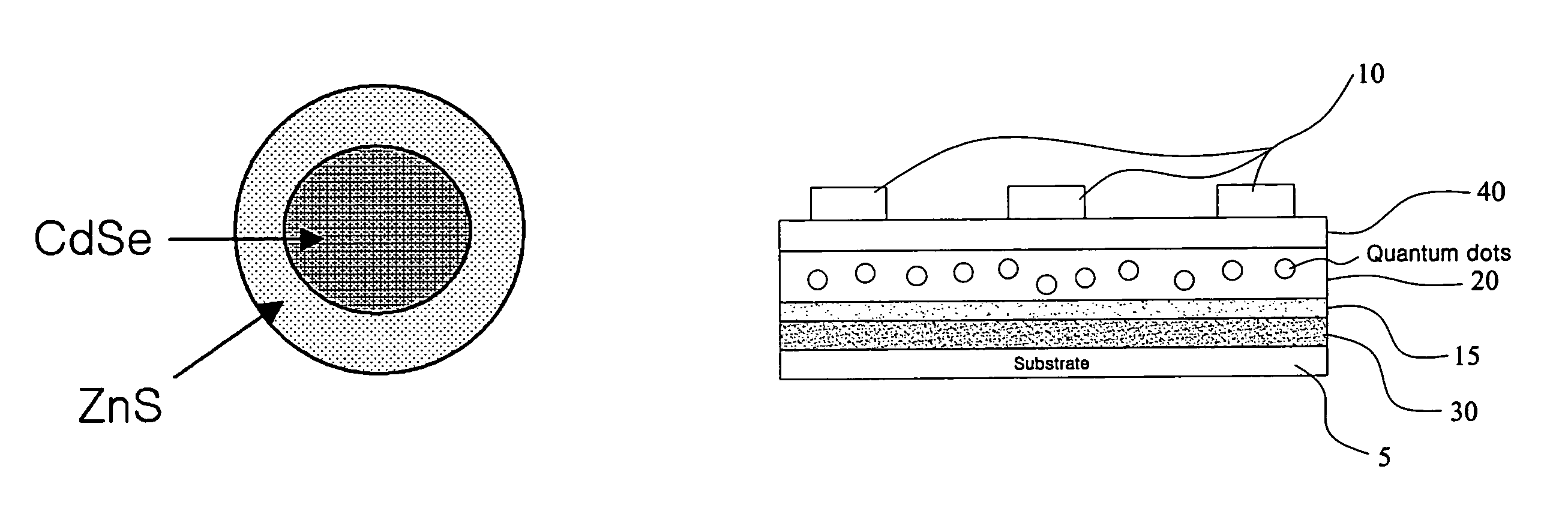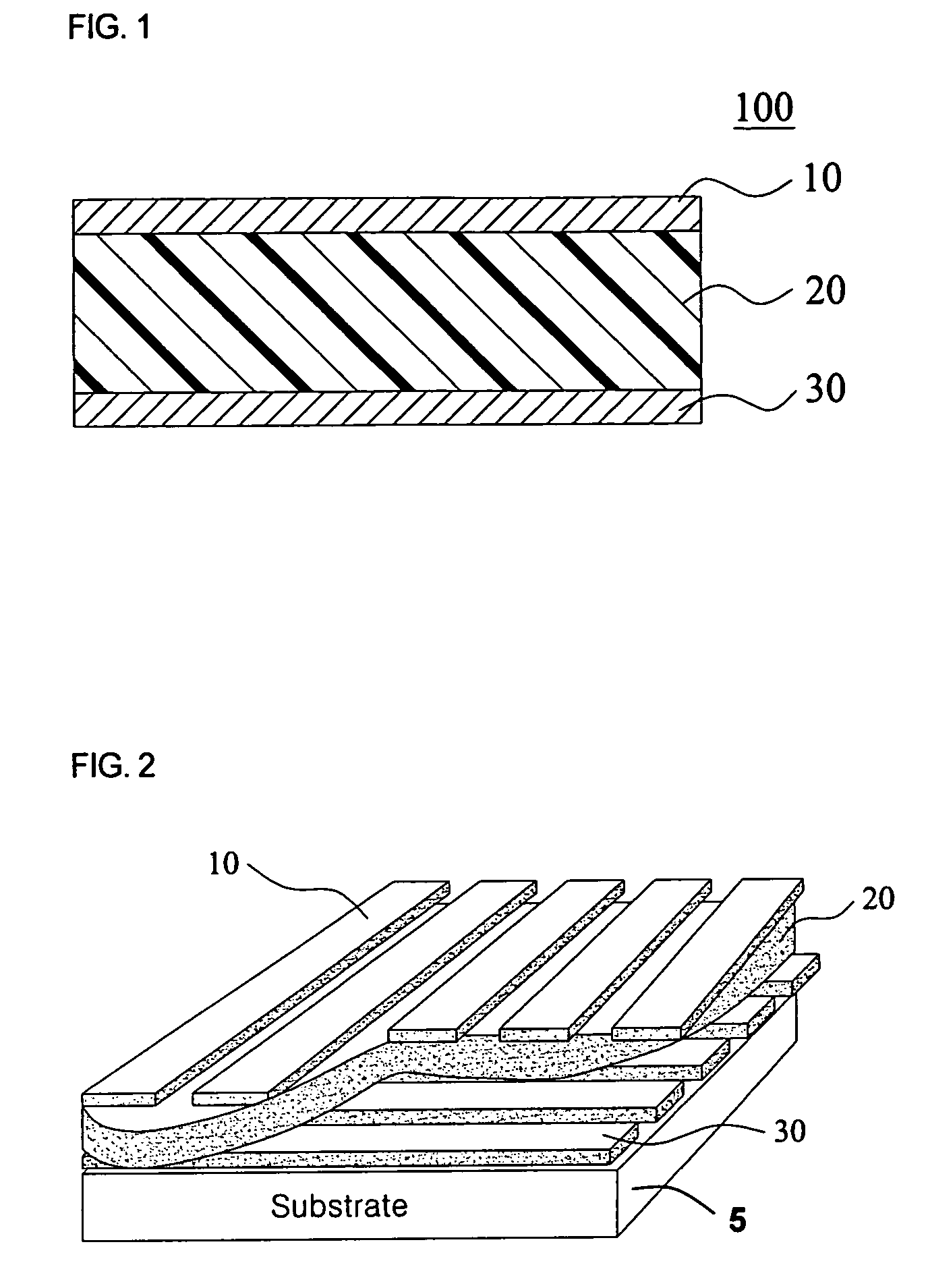Memory device using quantum dots
a memory device and quantum dots technology, applied in thermoelectric devices, instruments, nanoinformatics, etc., can solve the problems of increasing process costs, slow recording speed, disadvantages of conventional flash memory, etc., and achieve the effect of simple process and less production cos
- Summary
- Abstract
- Description
- Claims
- Application Information
AI Technical Summary
Benefits of technology
Problems solved by technology
Method used
Image
Examples
example 1
[0036]On a glass substrate having an aluminum (Al) lower electrode layer deposited thereon, a solution of CdSe (core) / ZnS (shell) quantum dots (1 wt %) obtained in the Preparative Example and poly(3-hexylthiophene) conductive polymer (9 wt %) in toluene was spin coated at 2500 rpm for 30 sec, and then baked at 60° C. for 30 min. Then, a barrier layer (Alq3) was deposited to a thickness of 20 nm on the coated substrate, and copper (Cu) was deposited on the barrier layer to form an upper electrode layer, thus obtaining a memory device. As such, the memory layer was 15 nm thick, and the electrode layers were 80 nm thick, in which the thickness of each layer was measured using an alpha-step profilometer. The electrode layer was deposited using a thermal evaporation process and the thickness of the electrode layer to be deposited was controlled using a quartz crystal monitor.
[0037]The current-voltage (I-V) curve of the above memory device is shown in FIG. 5, in which the voltage scan is ...
example 2
[0038]On a glass substrate having an aluminum (Al) lower electrode layer deposited thereon, a solution of CdSe (core) / CdS / ZnS (shell) quantum dots (1 wt %) and poly(3-hexylthiophene) conductive polymer (9 wt %) in chloroform was spin coated at 25000 rpm for 30 sec, and then baked at 60° C. for 30 min. Then, a barrier layer (Alq3) was deposited to a thickness of 20 nm on the coated substrate, and copper (Cu) was deposited on the barrier layer to form an upper electrode layer, thus obtaining a memory device. As such, the memory layer was 20 nm thick, and the electrode layers were 80 nm thick, the thickness of each layer being measured using an alpha-step profilometer. The electrode layer was deposited using a thermal evaporation process and the thickness of the electrode layer to be deposited was controlled using a quartz crystal monitor.
[0039]The current-voltage (I-V) curve of the above device is shown in FIG. 6, in which the voltage scan is 0.1 volt / sweep. As shown in FIG. 6, a memo...
PUM
 Login to View More
Login to View More Abstract
Description
Claims
Application Information
 Login to View More
Login to View More - R&D
- Intellectual Property
- Life Sciences
- Materials
- Tech Scout
- Unparalleled Data Quality
- Higher Quality Content
- 60% Fewer Hallucinations
Browse by: Latest US Patents, China's latest patents, Technical Efficacy Thesaurus, Application Domain, Technology Topic, Popular Technical Reports.
© 2025 PatSnap. All rights reserved.Legal|Privacy policy|Modern Slavery Act Transparency Statement|Sitemap|About US| Contact US: help@patsnap.com



